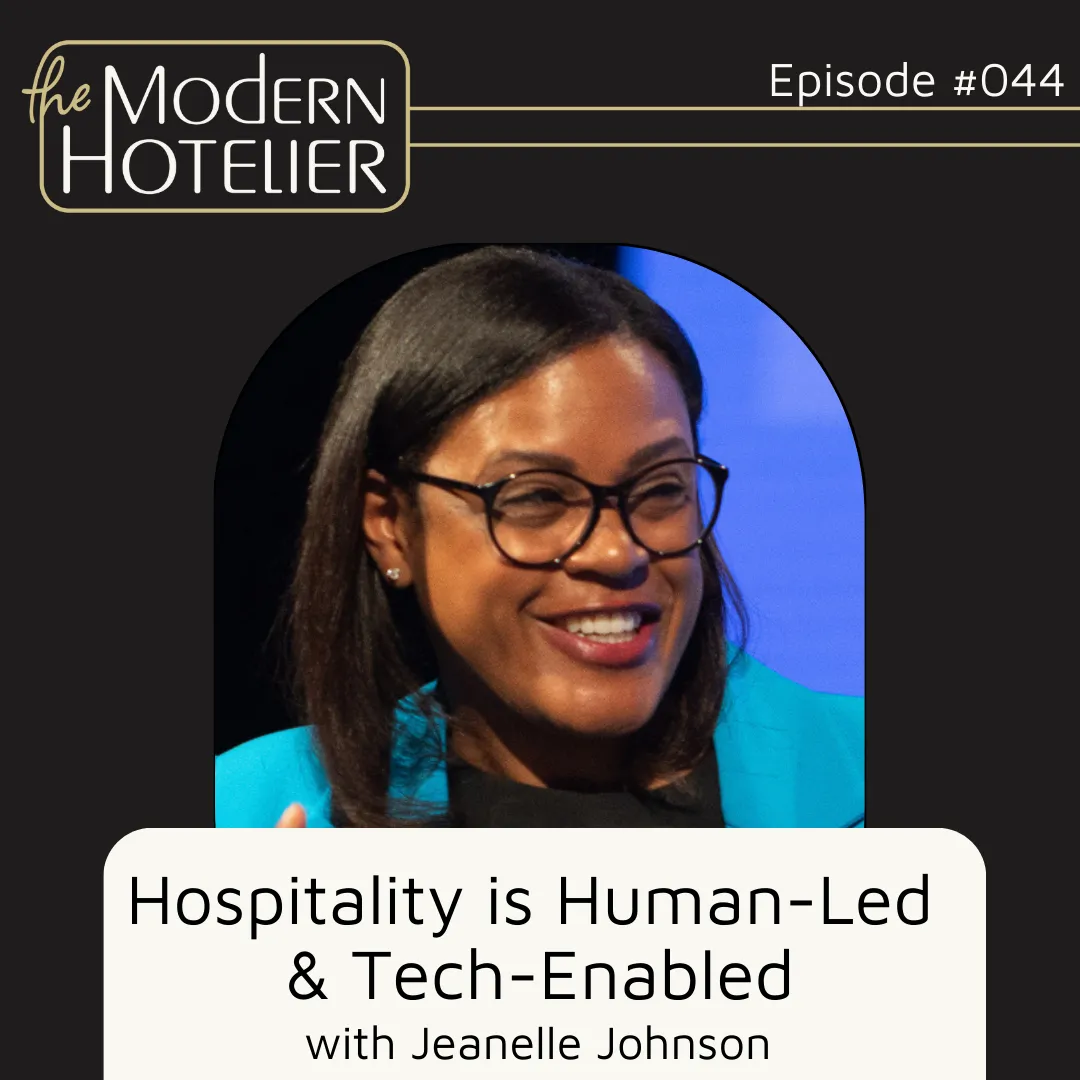Jeanelle Johnson is a Principal, Lead Client Partner and Travel, Transportation and Hospitality (TTH) sector Co-Leader at PwC, focused on client service, industry perspective and research for the firm’s leading TTH clients. With nearly 25 years of experience at leading investment banking and consulting firms, Jeanelle’s passion is to help clients with strategic planning around their growth and investment agendas and advise on business-wide risks and value drivers in their business transformations. Recently, her focus has been on digital transformation in the hospitality industry
In this episode, you'll discover:
- Jeanelle's journey to make partner at PwC
- How the ecosystem of multiple stakeholders impacts tech adoption in hospitality
- How the industry's "Technical Debt" is slowing its digital transformation
- Why there is no ceiling to a career in the hospitality industry
- How human-led, tech-enabled hospitality is improving the guest experience
- How to think about sustainability and reducing waste in hotels
Join the conversation on today's episode on The Modern Hotelier LinkedIn page.
The Modern Hotelier is produced, edited, and published by Make More Media: https://makemore.media/
Episode Links
Jeanelle Johnson
David Millili
Steve Carran
Steve on LinkedIn
The Modern Hotelier
Transcript
Automatic Transcription - please excuse any errors

